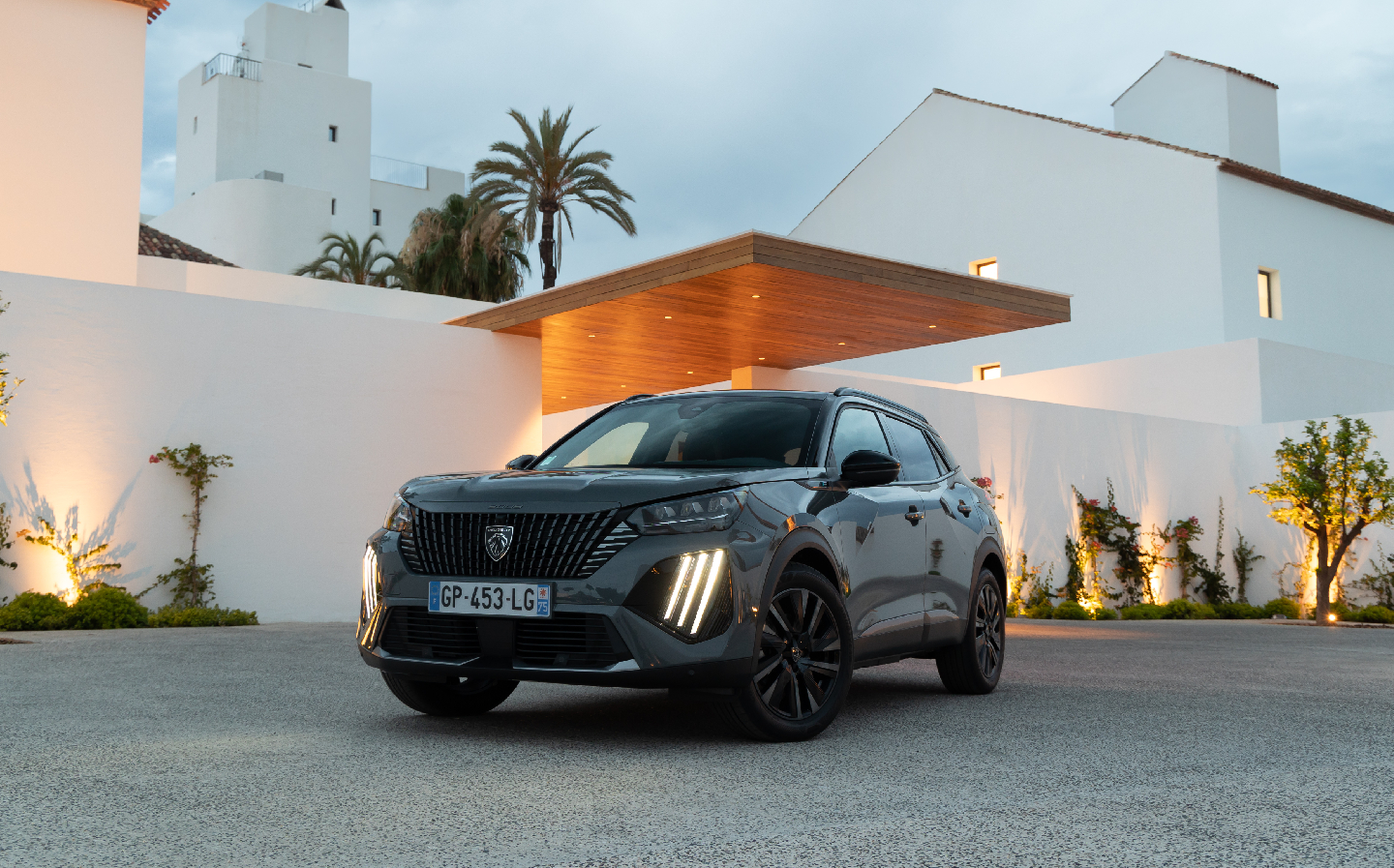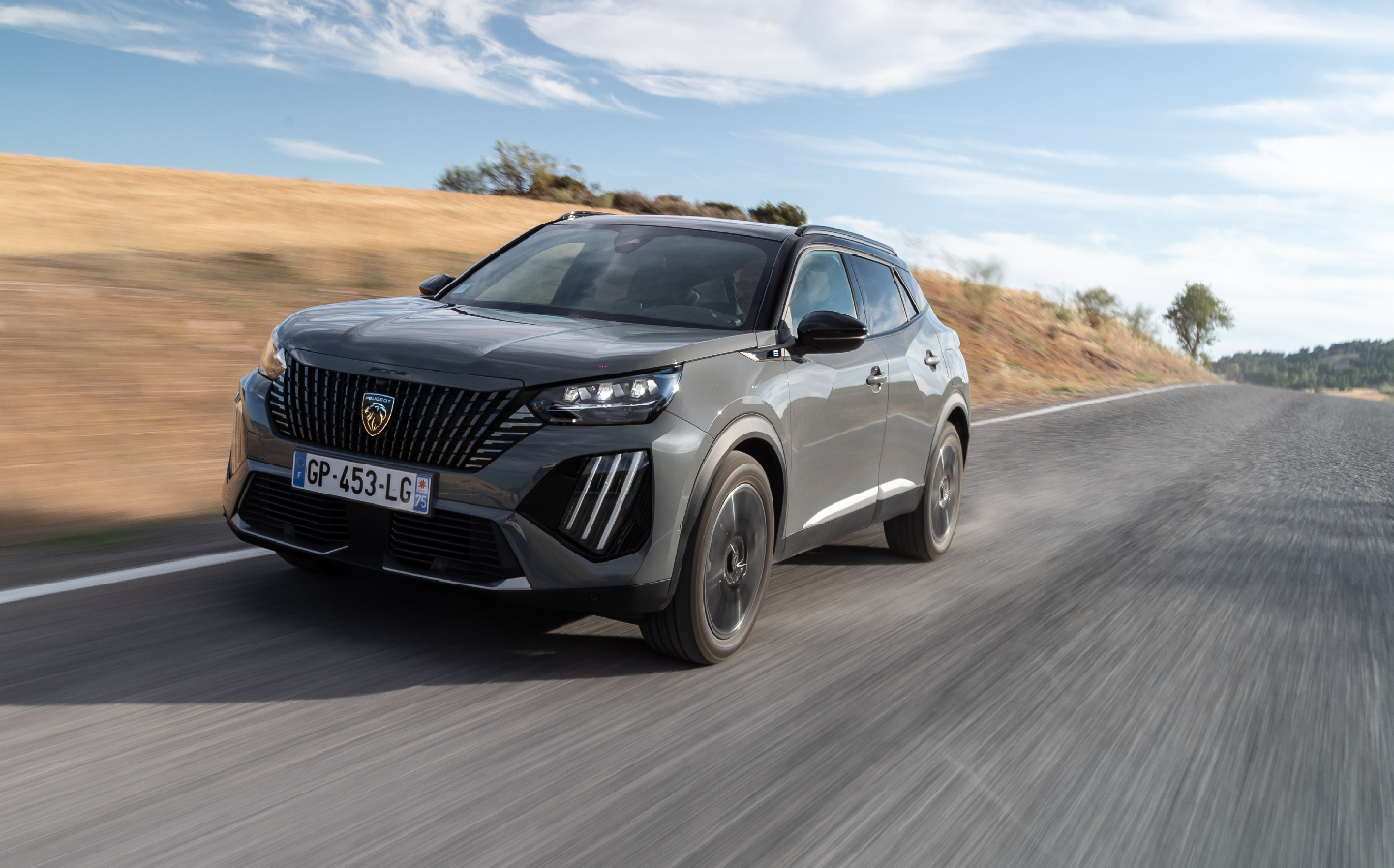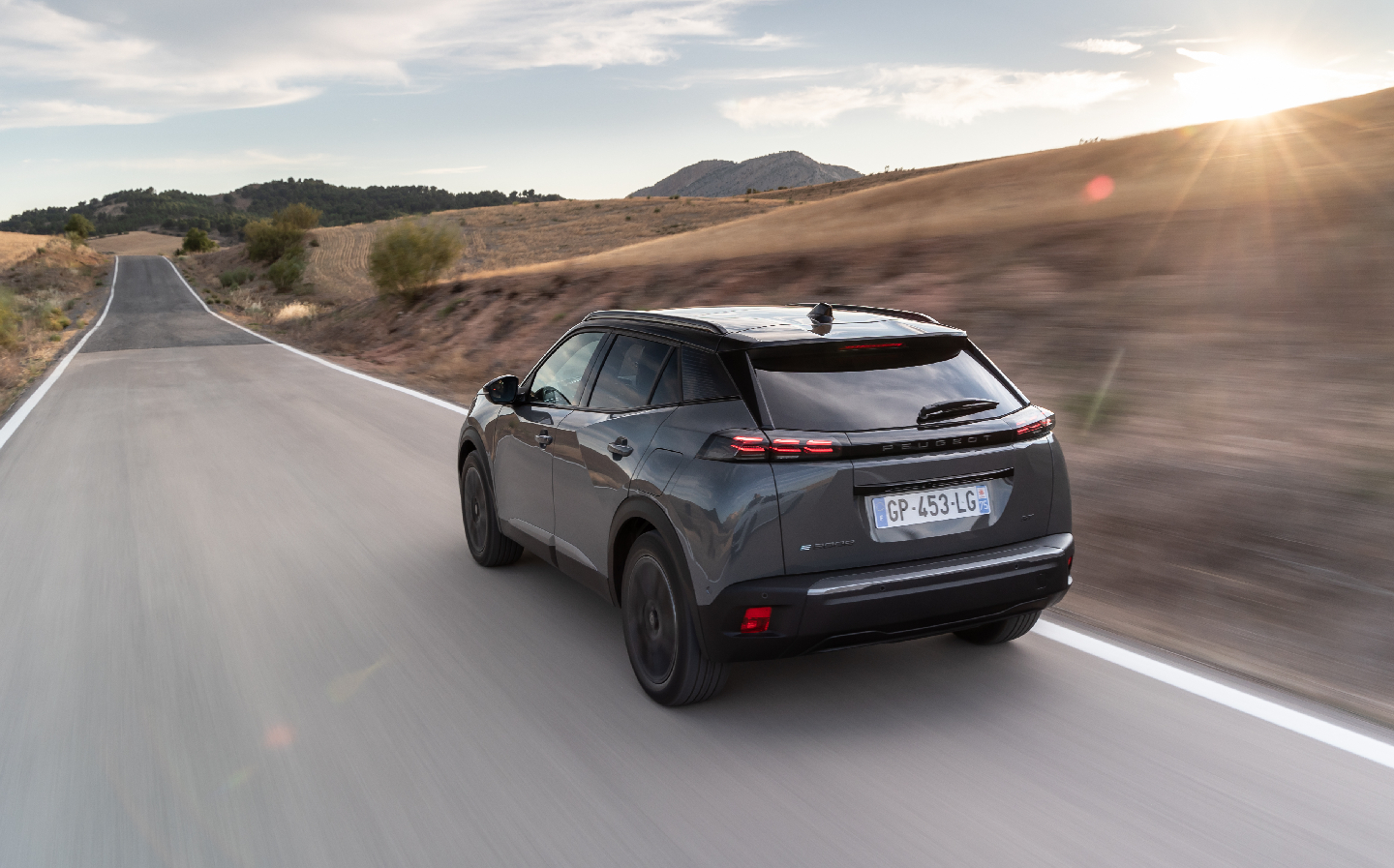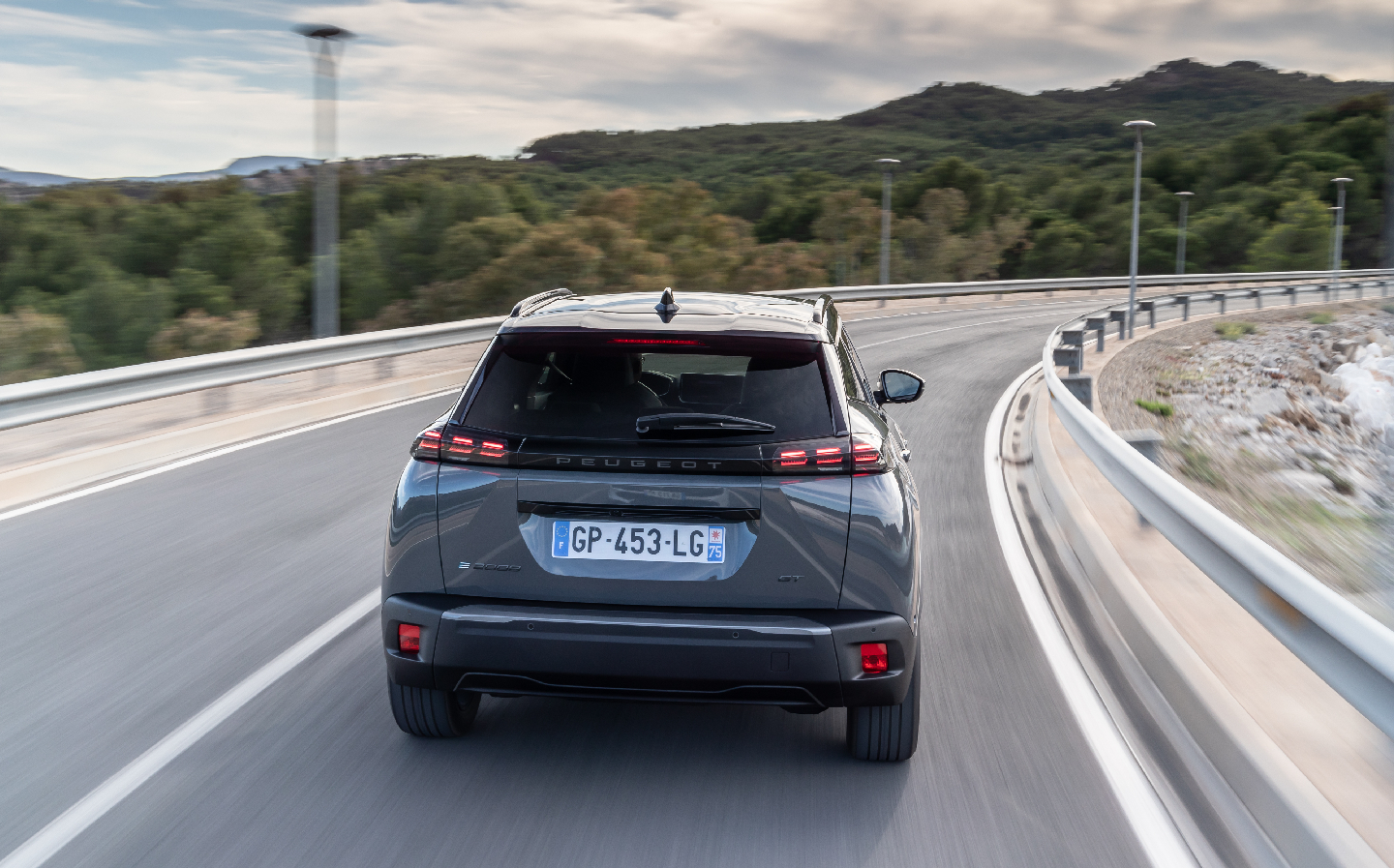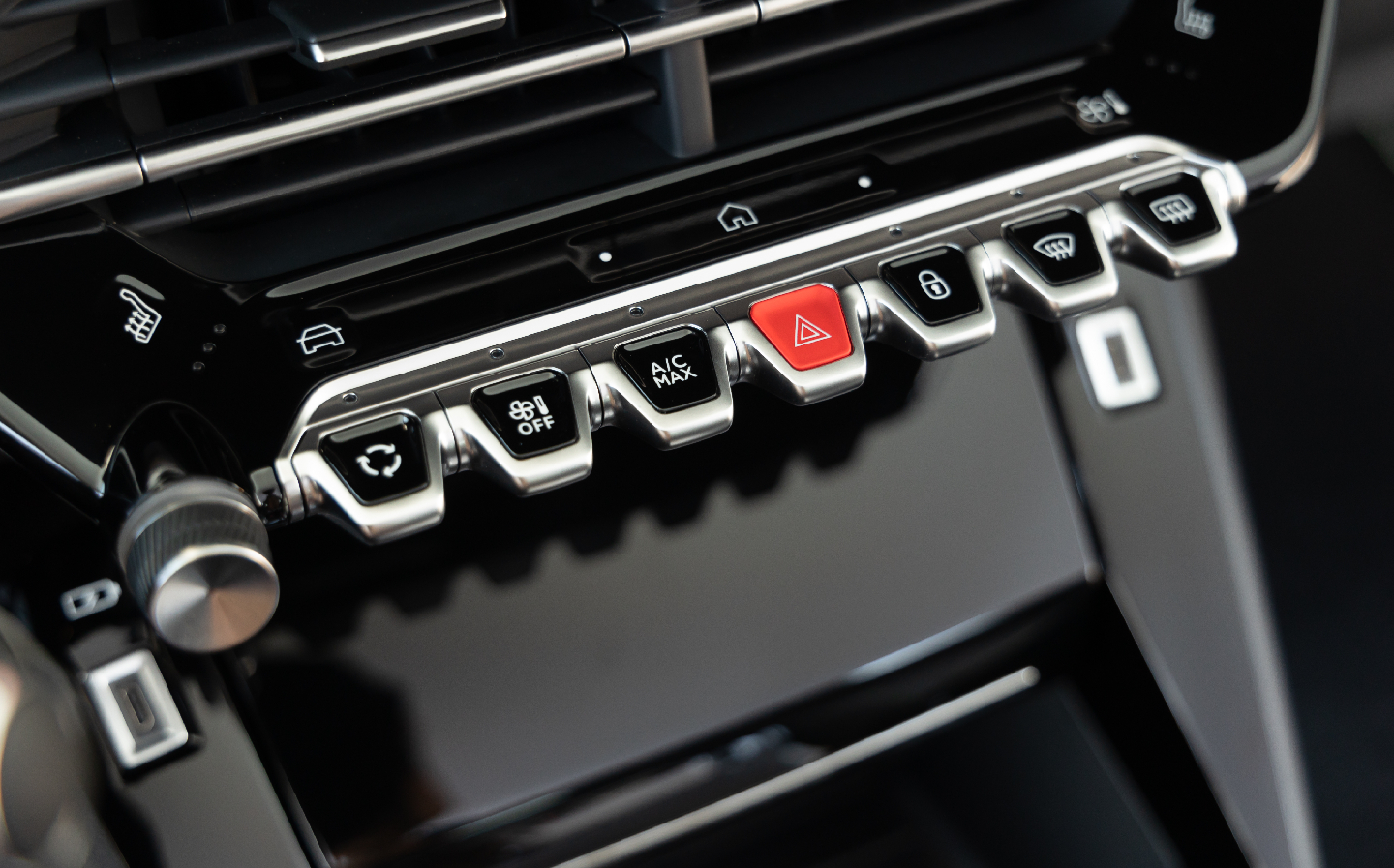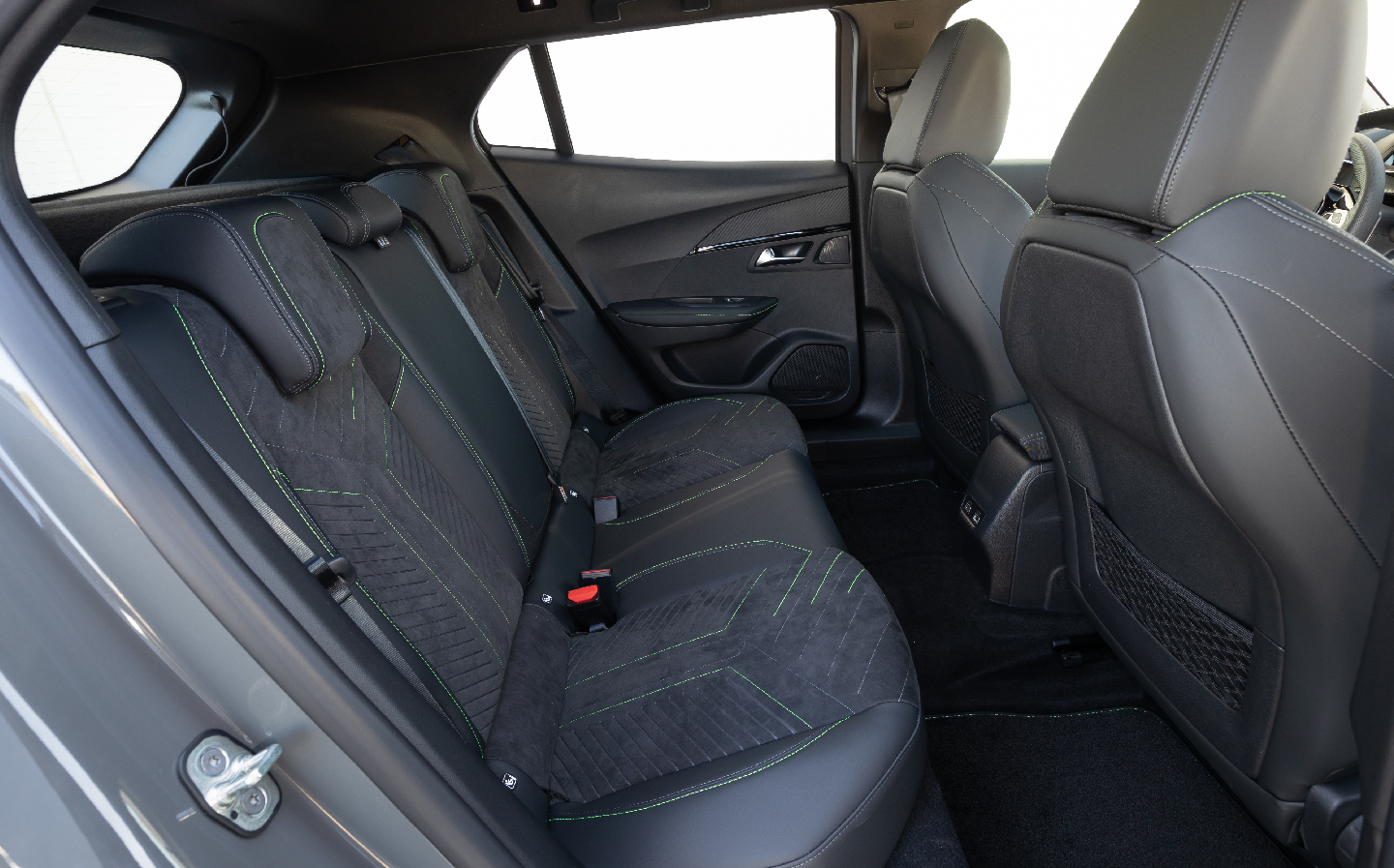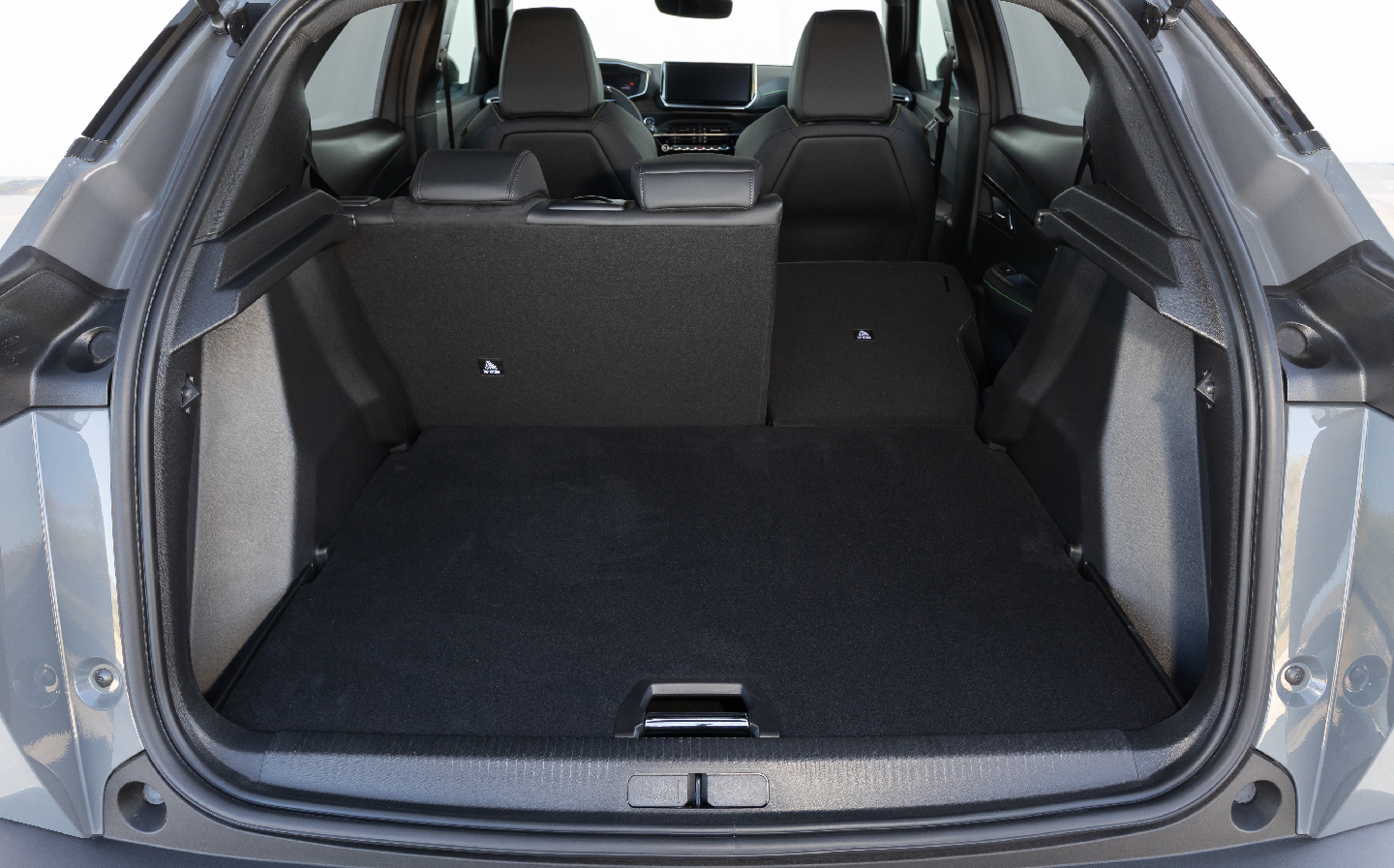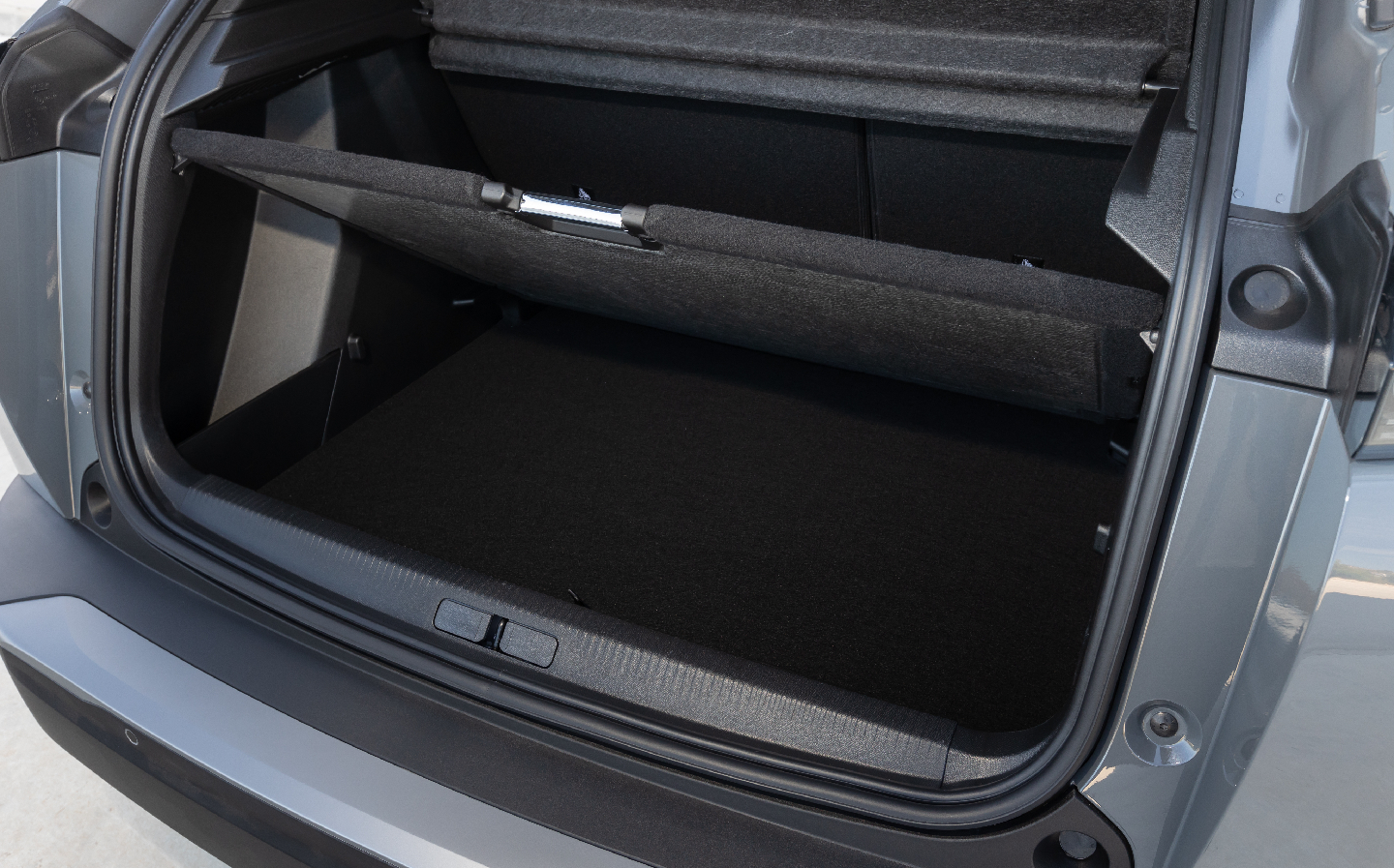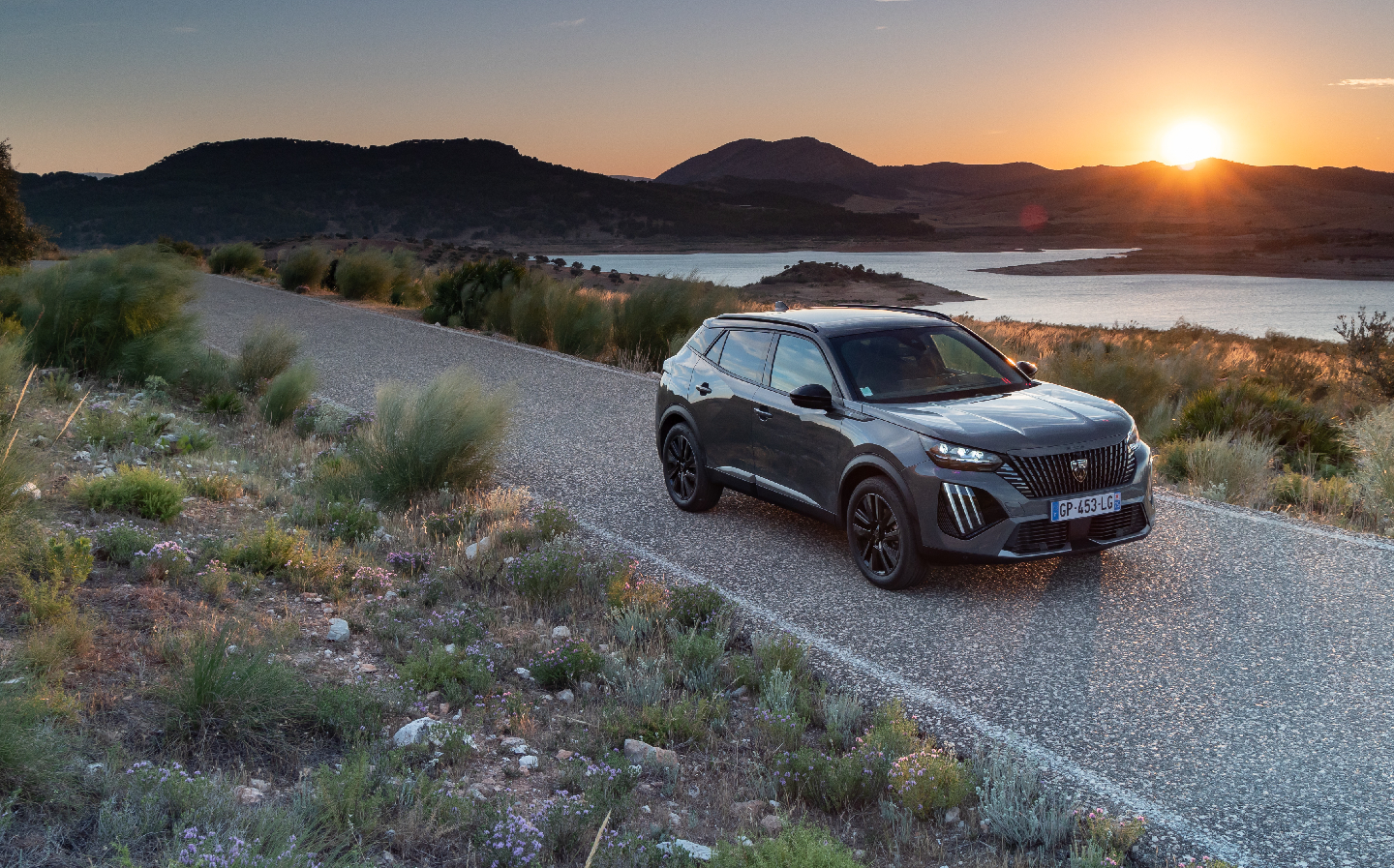Peugeot e-2008 2023 review: Updated electric crossover goes further, faster
French manufacturer keeps its baby crossover EV in the running
Peugeot was one of the first mainstream carmakers to introduce small electric vehicles, with the iOn, in 2011. Then the e-208 of 2019 offered a credible electric alternative to the Renault Zoe in the supermini class, and it has become the category’s best seller in Europe. At the same time, the e-2008 gave customers a jacked-up crossover version, and it’s been a top three seller in its class across the continent.
Now we have a refreshed version, with updated styling, more power, the ability to go further per charge and improved cabin tech. But is the new Peugeot e-2008 going to remain a class leader as other small SUVs begging to flood our roads? Read on for the full review.
Exterior design and rivals
Peugeot has made an effort to add extra road presence to its small SUV, the most obvious results of which are the blunter nose, wider grille with body-coloured inserts and the three lion-claw light signature (up from a single ‘fang’ in the previous model). Top spec GT models even get a three-claw dipped headlight signature, so drivers will notice the trademark on the road at night. Of course, Peugeot’s new badge features prominently on the nose, too.
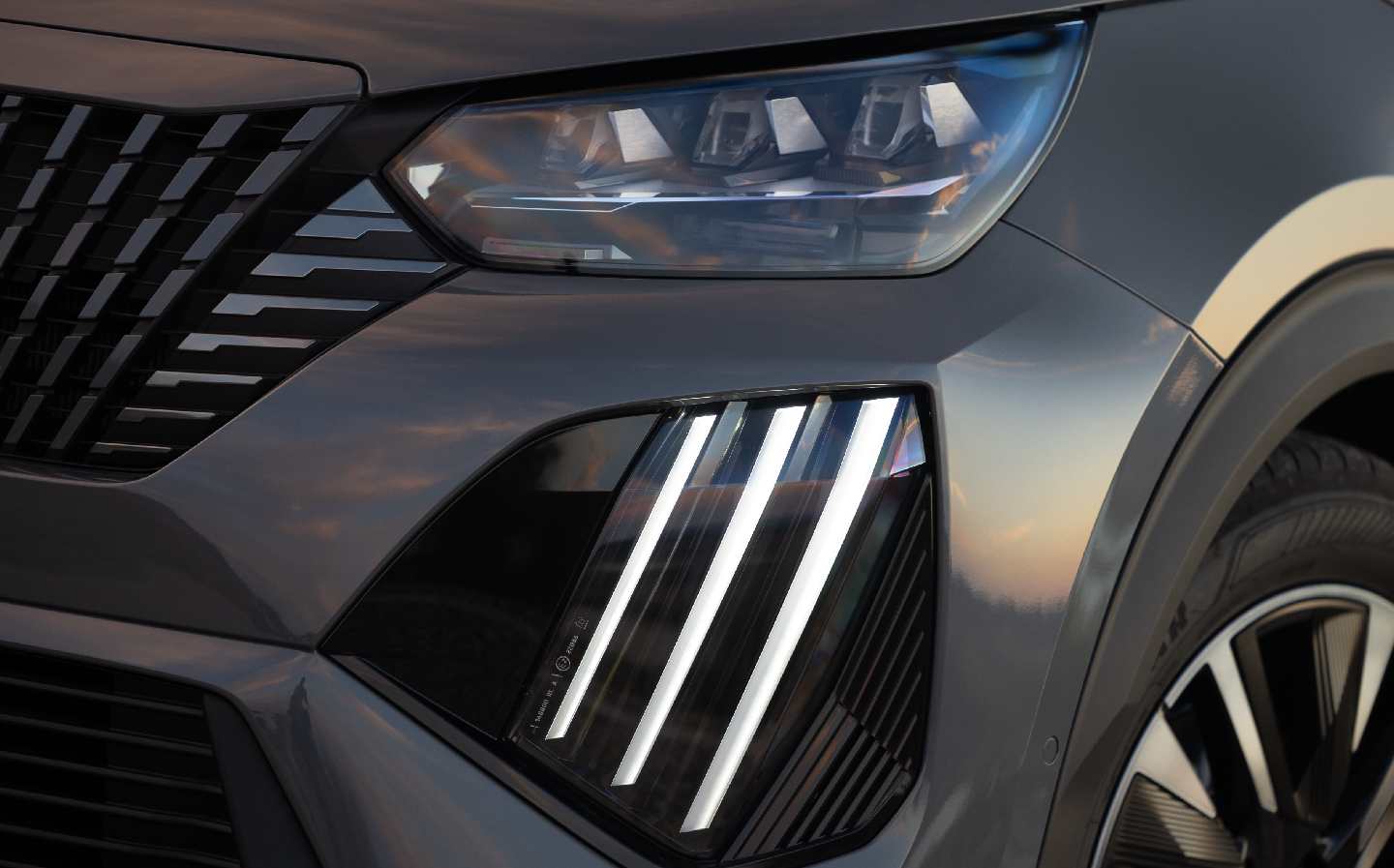
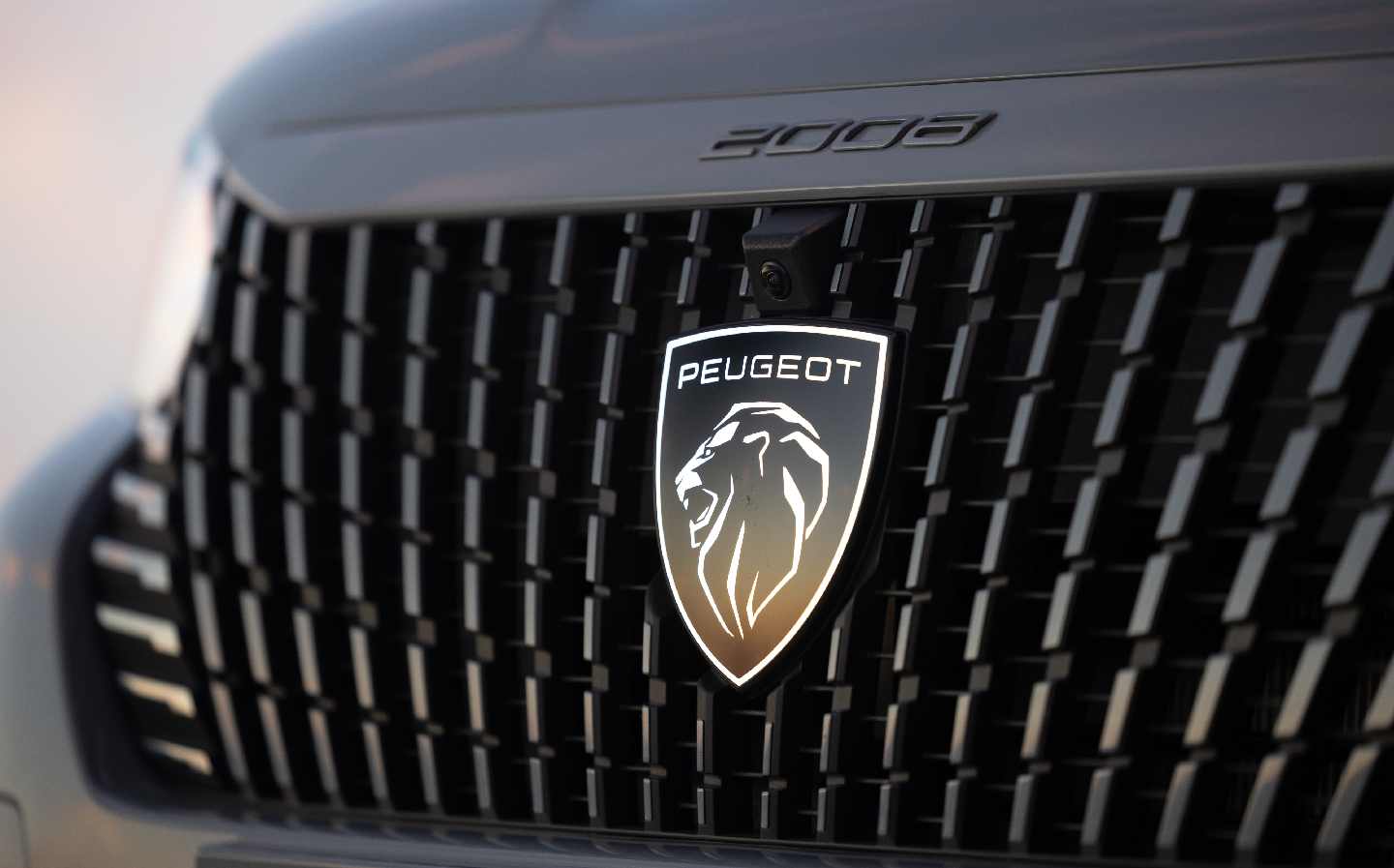
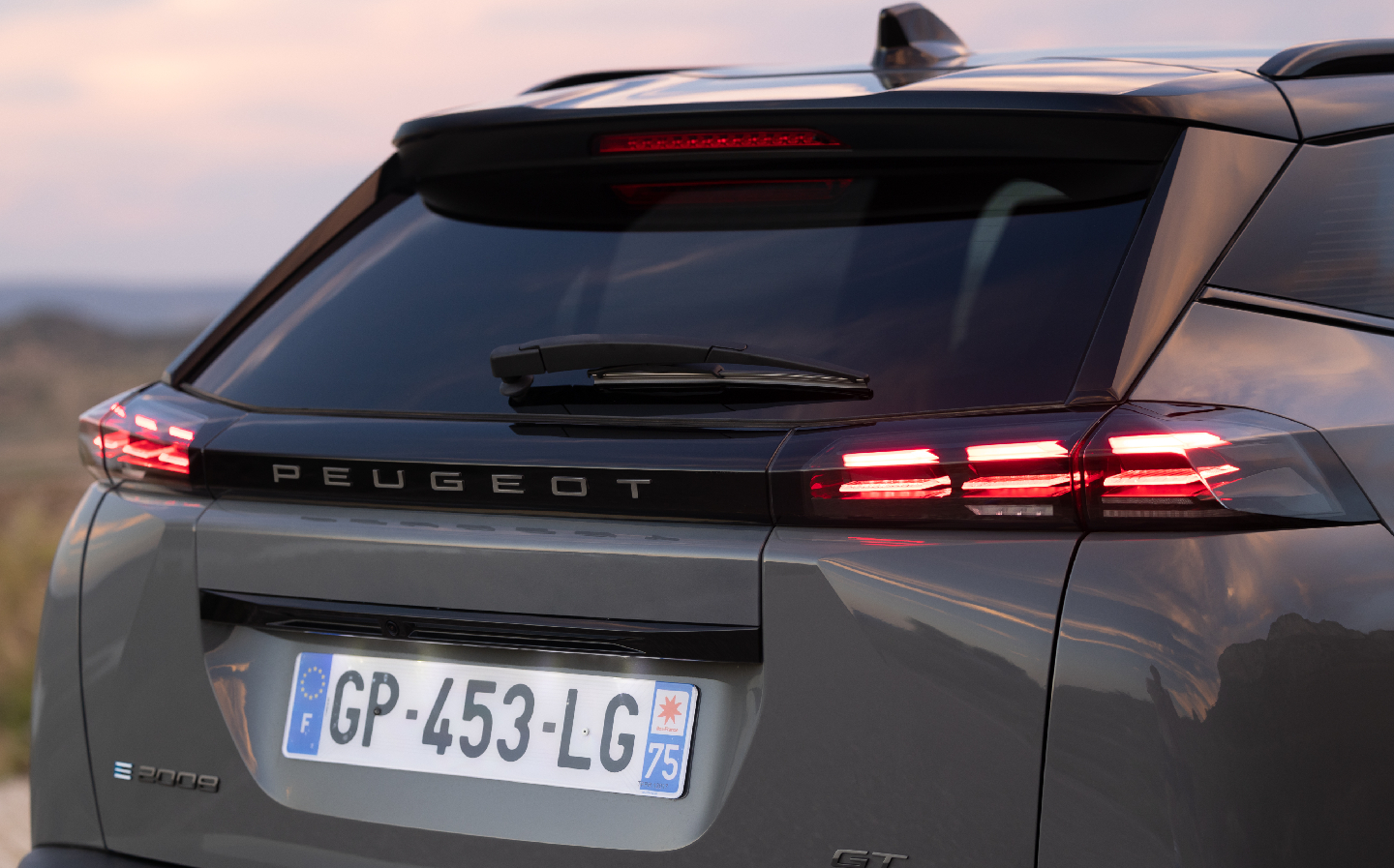
At the rear, Peugeot has introduced a dual-layer horizontal light signature, which makes the rear end look wider than before, even though the exterior dimensions are unchanged from the outgoing model. There’s also Peugeot lettering across the hatchback.
The overall impression is that the e-2008 has moved with the times and now looks more purposeful on the road. Peugeot will want me to use its word of the moment here — “alluring” — but that’s marketing guff. At the end of the delay it’s a nice-looking crossover, as they go.
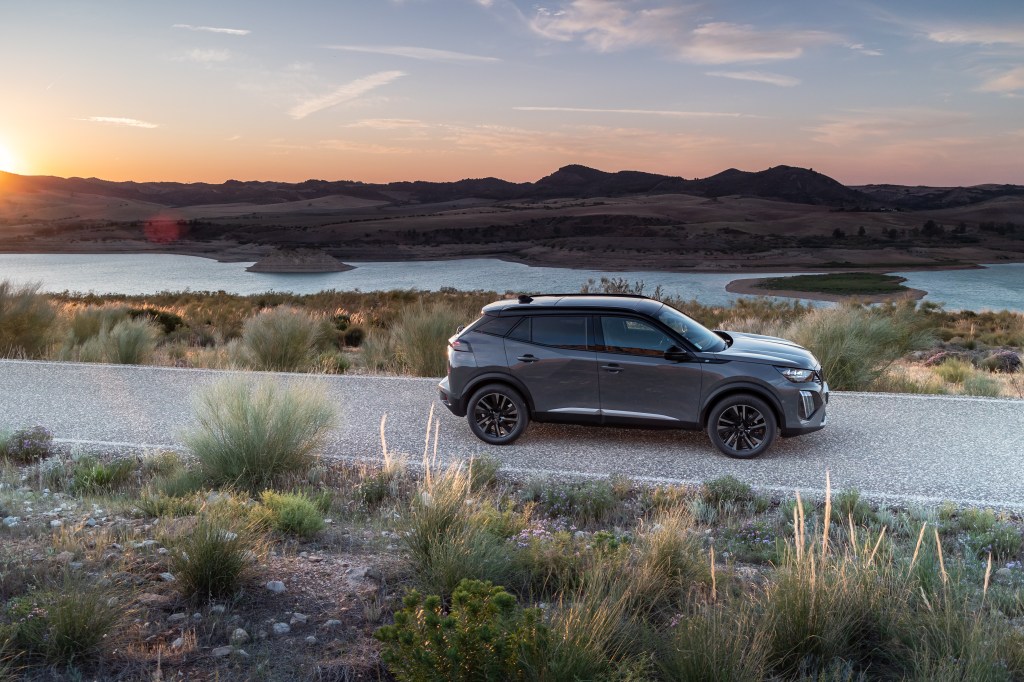
The number of rivals for the e-2008 is growing fast, as more brands roll out electric compact crossovers. Main competitors right now include the highly competent if less-than-thrilling Kia e-Niro and the attractive Hyundai Kona Electric, while in the near future a pure-electric version of the Ford Puma is due and likely to sell well, based on uptake of the petrol Puma.
New Chinese rivals such as the Smart #1, BYD Atto3 and highly affordable MG ZS EV are also steal sales away, though buyers may want to consider China’s human rights record before parting with their cash.
One of the e-2008’s chief rivals comes from within the Stellantis Group: the Vauxhall Mokka Electric will be receiving the same powertrain updates as the e-2008 and could prove a popular alternative.
Interior and technology
Inside the Peugeot i-Cockpit, which is characterised by a small steering wheel, over which the instrumentation viewed (rather than through the wheel), remains. This will suit some but frustrate others, as depending on your height it can be tricky to be both comfortable and have a clear view of the binnacle.
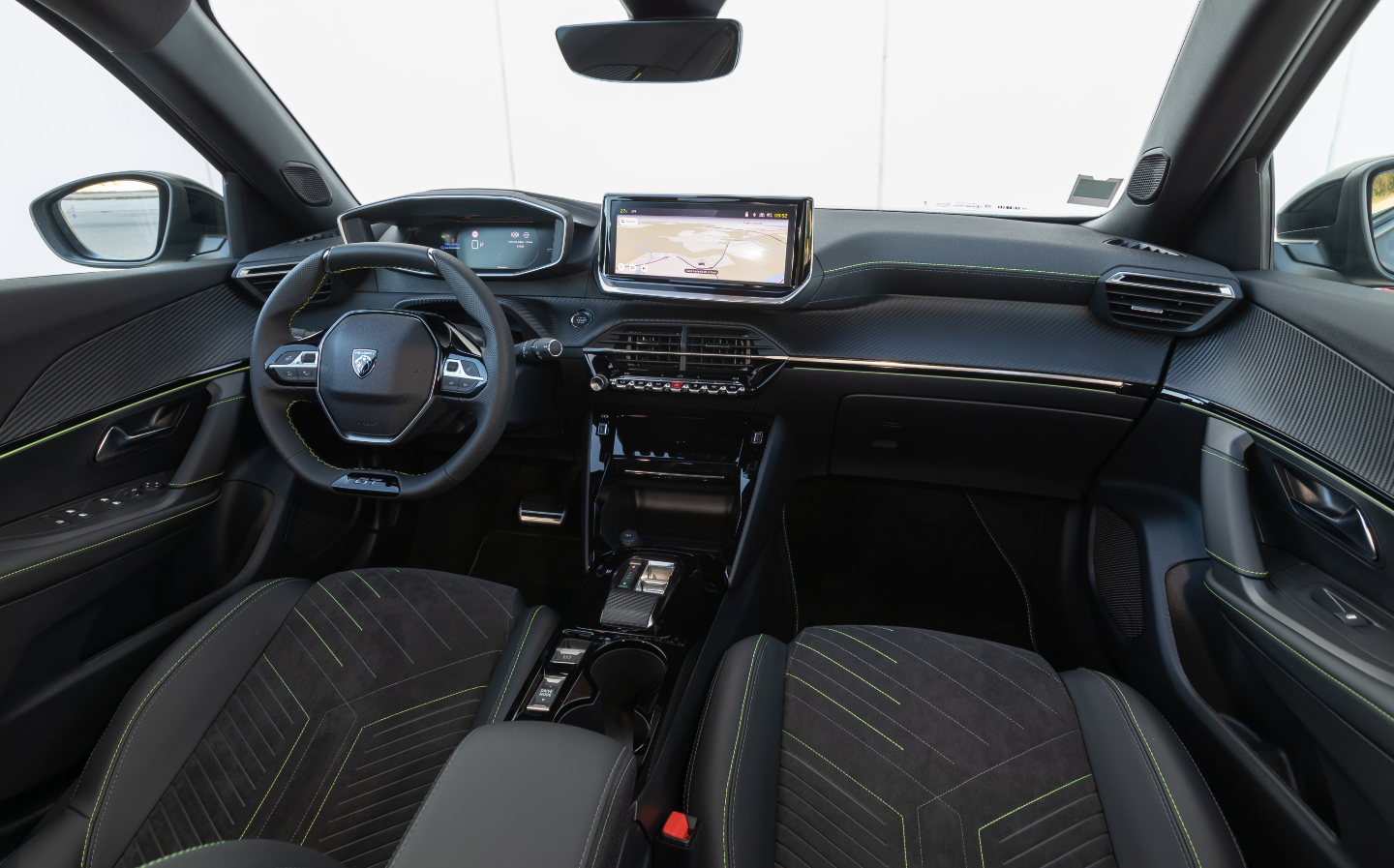
The new e-2008 is actually more suited to my tall frame than the 308, and I was able to set the driver’s seat up comfortably while still having a clear view of the driver’s display.
The seats are also very comfortable, though on a long run my right leg (on the left-hand drive test car) still suffered from aches thanks to an awkwardly-shaped central console, which it was resting against.
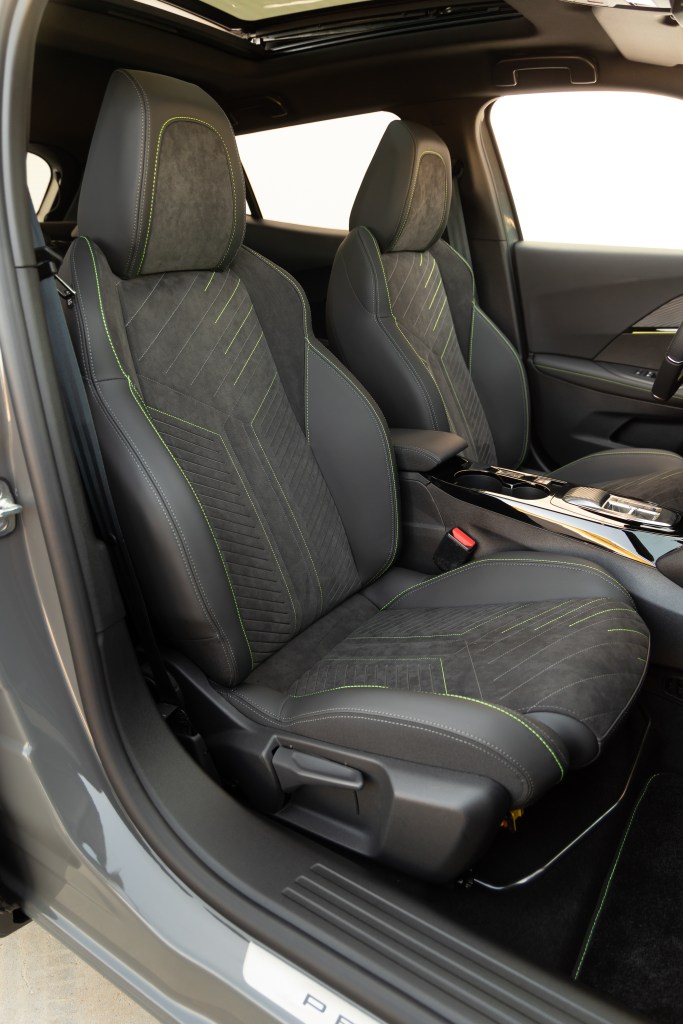
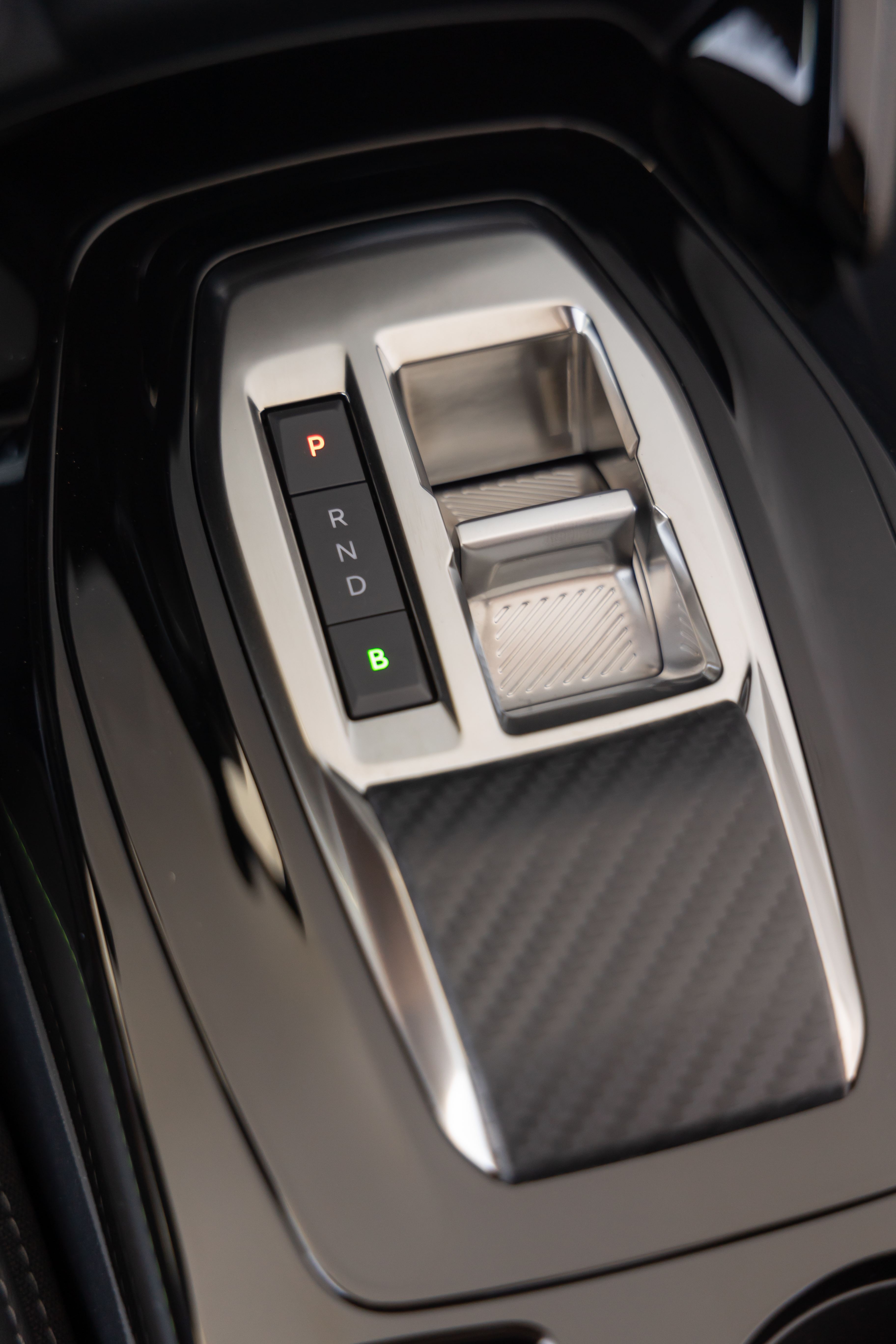
Overall comfort is really impressive and there’s plenty of space for both front and rear passengers, though disappointingly the rear floor isn’t flat, unlike many other electric cars, which reduces space for feet and the ability to climb through.
Those driver instruments are now presented on a new 3D-effect 10in digital display (on higher spec models), which can be customised according to individual preference, though the basic set-up offers a really clear, attractive layout.
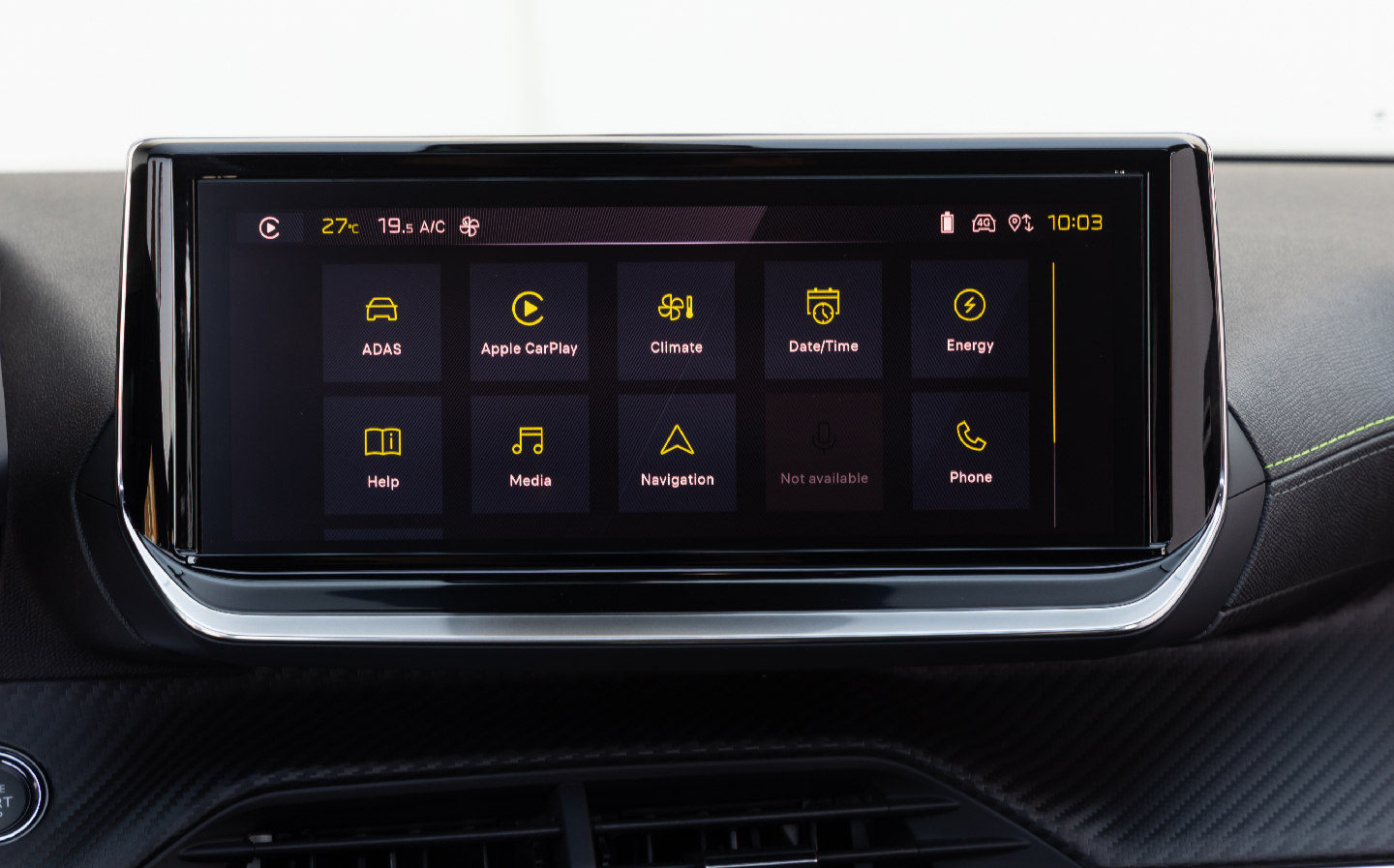
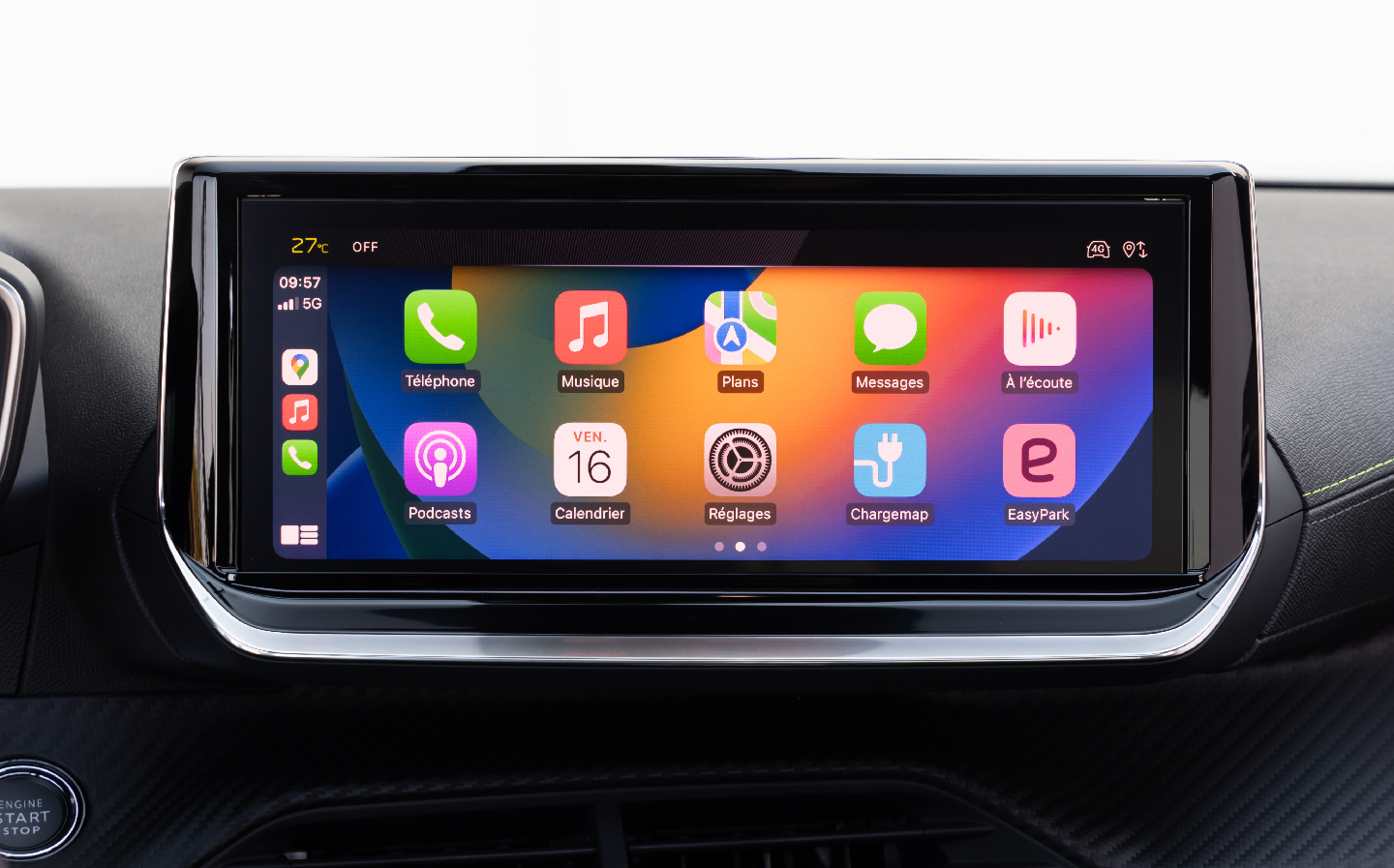
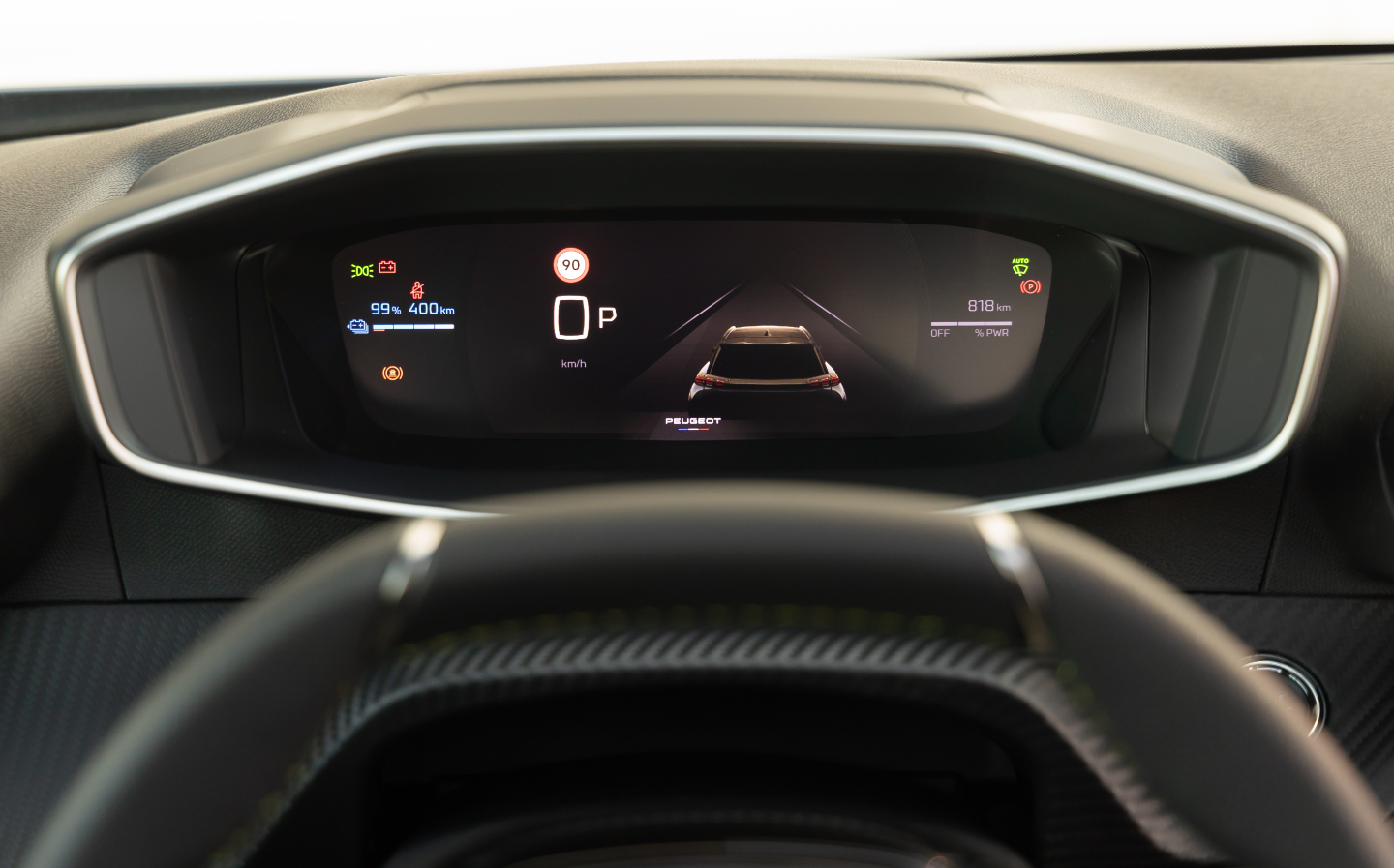
That’s complemented by a larger 10in central touchscreen for infotainment, which works pretty well, but those of the 308, 408 and next-gen Peugeots offer more convenience with customisable digital “i-Toggle” buttons, allowing quick shortcuts to your favourite menus.
We were particularly baffled there wasn’t a dedicated piano key for navigation in the e-2008 — instead you have to press the home button, then select navigation from the touchscreen.
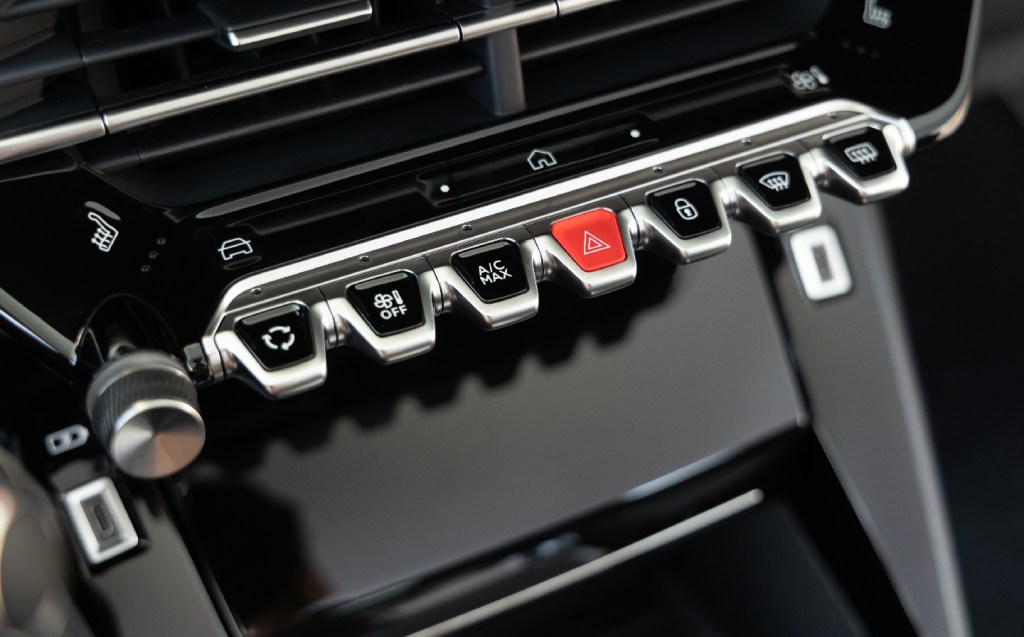
On the plus side, Apple Carplay and Android Auto are standard across the range, and there’s a more powerful wireless charging pad, connected car services with TomTom navigation that can be updated over the air, and voice activation.
Performance, electric range and charging speeds
The e-2008 sits alongside two petrol models at launch, with a hybrid to come in 2024. The pure-electric is the most powerful of the bunch, with an output of 154bhp whichever grade you go for, and though we only drove the e-2008 on the launch it’s fair to say that the torque of the electric motor will mean it feels by far the punchiest, especially at lower speeds.
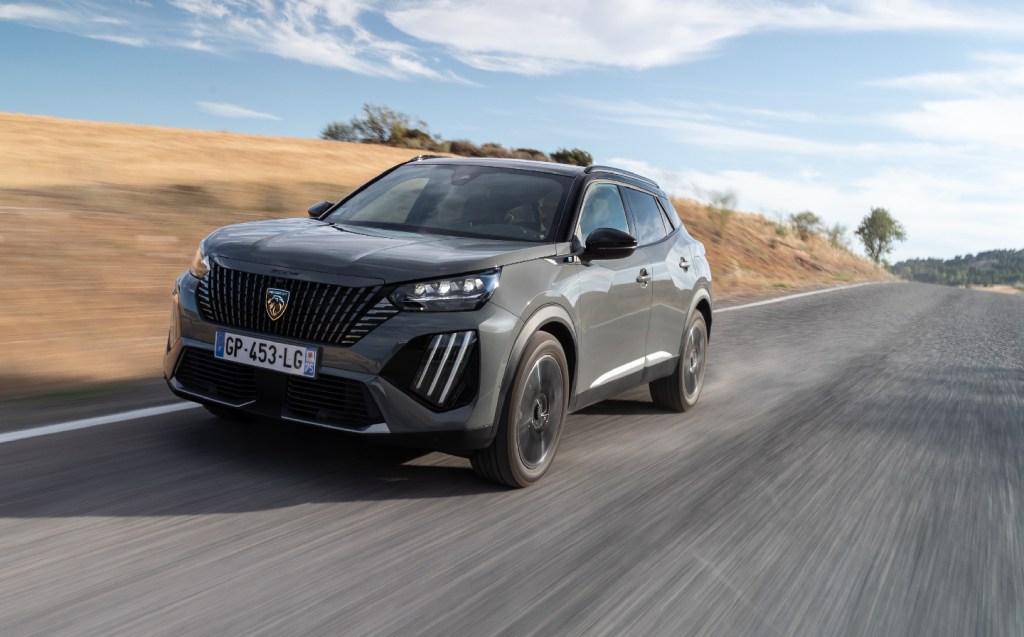
Power from the e-motor has been increased by 15 per cent versus the outgoing e-2008, so it’s also a decent amount sprightlier than before.
On the road the motor feels decently punchy. It’s still far from a match for the quickest electric hatchbacks and SUVS, but stick it in Sport mode then plant the accelerator and the e-2008 has the ability to beat most cars away from the lights.
The battery pack is slightly larger than that of the old e-2008, too, though not by much — it rises from 51kWh to 54kWh. The fact the range has increased from 214 miles to up to 251 miles per charge, then, is clearly down to a combination of that capacity increase as well as incremental improvements in other areas, such as the efficiency of the motor and other electric drivetrain components, to help squeeze out every mile possible. Expect electric cars to keep improving in this way over time.
Bear in mind that the quoted range figure is based on a standardised test and in the real world how far the car can travel between top-ups could be less than that, and will vary depending on many conditions, such as ambient temperature and driving style. Motorways with high speeds over long distances drain the battery significantly, for example, though you may find the range increases when a route includes cruising at lower speeds.
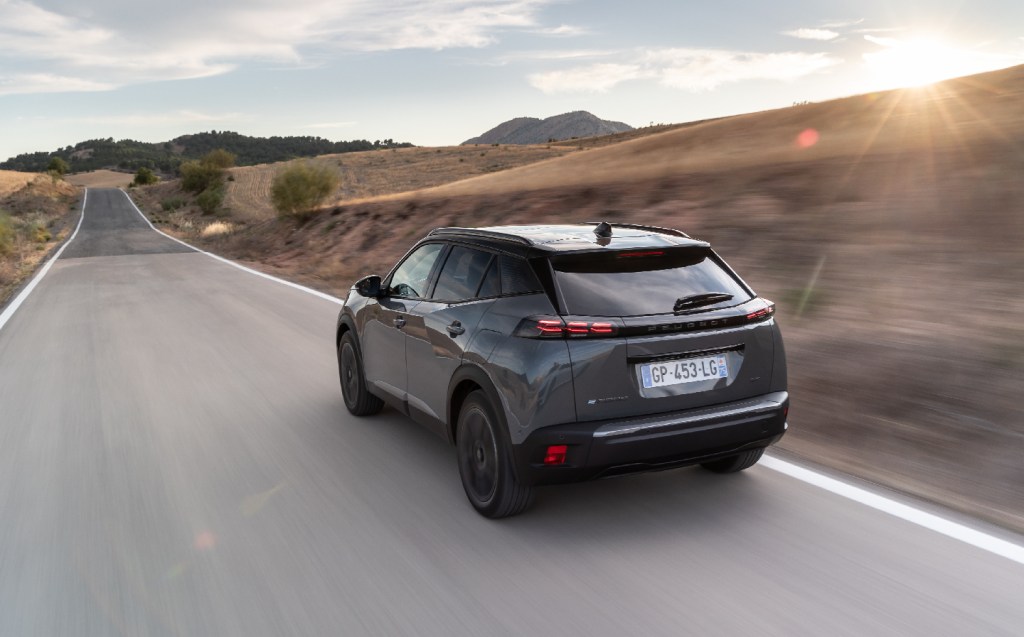
In our test we drove 135 miles over a mix of roads, starting with a full battery, and ended the test with 56 per cent and a predicted 116 miles remaining, suggesting in warm weather the claimed range is achievable.
When you do need to recharge, all new e-2008s come with DC rapid charging at 100kW, which isn’t industry leading but is good enough to take the battery from flat to 80 per cent full in 30 minutes on a compatible charger.
The cars come with a choice of onboard AC chargers — single phase at 7.4kW or three-phase at 11kW — which sounds complicated but the important thing to know is that a home wallbox working at the lower speed is able to completely refill the pack in 7 hours 30 minutes, which means those who can plug in at night or at work will have a full battery when they return to their car.
Ride and handling
Buyers of Peugeot family crossovers won’t be expecting scintillating handling and sporty dynamic ability but the Peugeot e-2008 holds up pretty well to scrutiny, and can be fun to hustle along a B-road while also providing good ride comfort.
In fact, the e-2008 excels in its supple ride, brushing away potholes, road humps and so on with ease. Its pliant suspension and damping set-up are real plus points of the car.
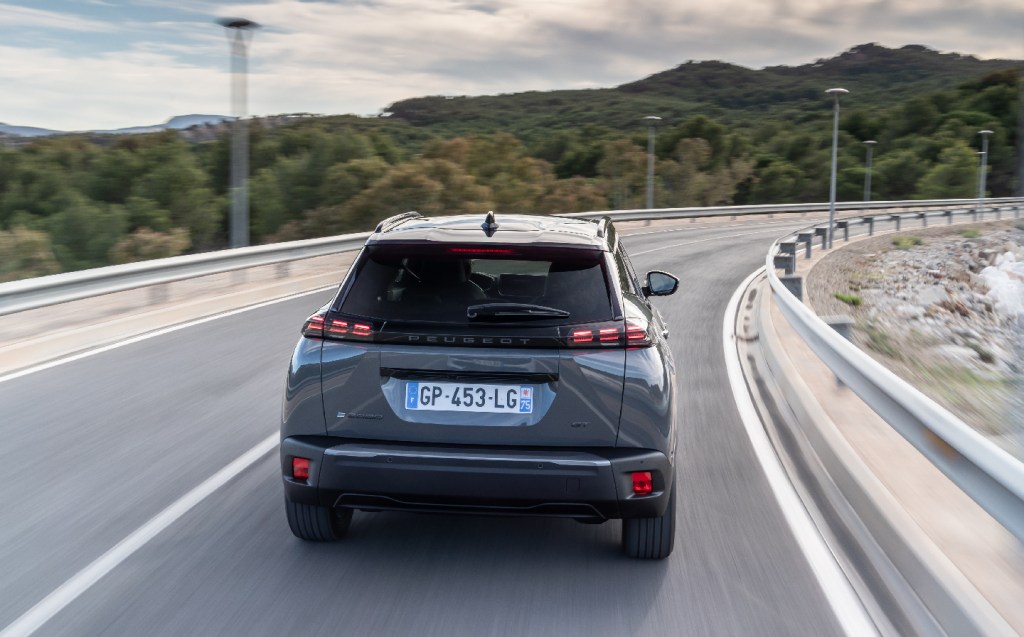
The trade-off is more bodyroll than you get from the e-208 or something like the 308, though with most of the weight under the floor the bulk of the mass is low, so it’s still a car that can be chucked around with confidence.
The brakes aren’t especially strong but they have a consistent feel, and when combined with the B mode, which dials up the regenerative braking, the e-2008 can be stopped quickly and with confidence from high speeds.
The steering, meanwhile, feels oddly responsive at first, thanks to the small steering wheel, but driver will quickly get used to it and may come to enjoy it.
On the downside, as with the previous version there’s plenty of wind noise around the driver’s window and wing mirror, which is noticeable at speed.
Price and on sale date
The new Peugeot e-2008 is already on sale in the UK in petrol and electric forms. Prices start at £36,350 for the entry-level Active version, and that gets the 10in central touchscreen, Apple Carplay and Android Auto, and driving aids such as rear parking sensors, cruise control and automatic emergency braking.
Stepping up to the Allure trim, extra tech includes Peugeot connected car system called i-Connect, which includes navigation updates and voice recognition, and Allure also gets the 10in digital driver’s display, for all of which the price rises to £38,350.
If you want the e-2008 in GT trim, as shown here, prices tip the £40,000 mark, and that means these versions will attract the expensive car tax supplement when pure-electric cars start paying VED (road tax) from April 2025 … which is an odd position for a compact Peugeot to be in.
Find the right lease or salary sacrifice deal, though, and you’ll get luxuries such as the 3D Quartz digital instrument cluster, an HD reversing camera, full LED headlights with Smartbeam Assist and automatic height adjustment, keyless entry and wireless smartphone charging, plus a leather steering wheel.
If you get in there early there’s also a First Edition version, which includes heated Alcantara seats with ‘Adamite’ stitching and a massage function, and it will cost you £41,600.
Verdict: 2023 Peugeot e-2008

Peugeot has done more to its e-2008 than just make a few styling tweaks — the more powerful motor and slightly larger battery, along with efficiency enhancements of the powertrain, add a useful amount of extra range per charge. It also has a supremely comfortable ride and the revised styling, inside and out, will please many. The updated infotainment system is also greatly improved over the outgoing model and cabin space is better than in many of the other Peugeot models.
It faces stiff competition, though, with rivals such as the Vauxhall Mokka Electric and forthcoming electric Ford Puma likely to do well, and new Chinese efforts could appeal to buyers’ wallets, especially when prices for the Peugeot start at more than 36 grand.
All things considered, though, the new e-2008 is improved in more than enough areas to keep it on the radar of electric car buyers, and it is pleasing to drive and be inside. Buyers are unlikely to be disappointed.
Related articles
- If you enjoyed this review of the 2023 Peugeot e-2008 you may also like to check out our review of the soon-to-be-refreshed Vauxhall Mokka petrol and Mokka-e
- Here are 10 things to know before you buy an electric vehicle
- These are all the car brands’ electric car plans
Latest articles
- Skoda Elroq 2025 review: Czech carmaker can’t seem to miss with its electric family cars
- Five best electric cars to buy in 2025
- Should I buy a diesel car in 2025?
- F1 2025 calendar and race reports: The new Formula One season as it happens
- Zeekr 7X AWD 2025 review: A fast, spacious and high tech premium SUV — but someone call the chassis chief
- Denza Z9GT 2025 review: Flawed but sleek 1,062bhp shooting brake from BYD’s luxury arm
- Extended test: 2024 Renault Scenic E-Tech review
- Best-selling cars 2025: The UK’s ten most popular models of the year so far
- Audi A6 Avant 2025 review: Trusty executive estate ticks expected boxes, and there’s still a diesel option


